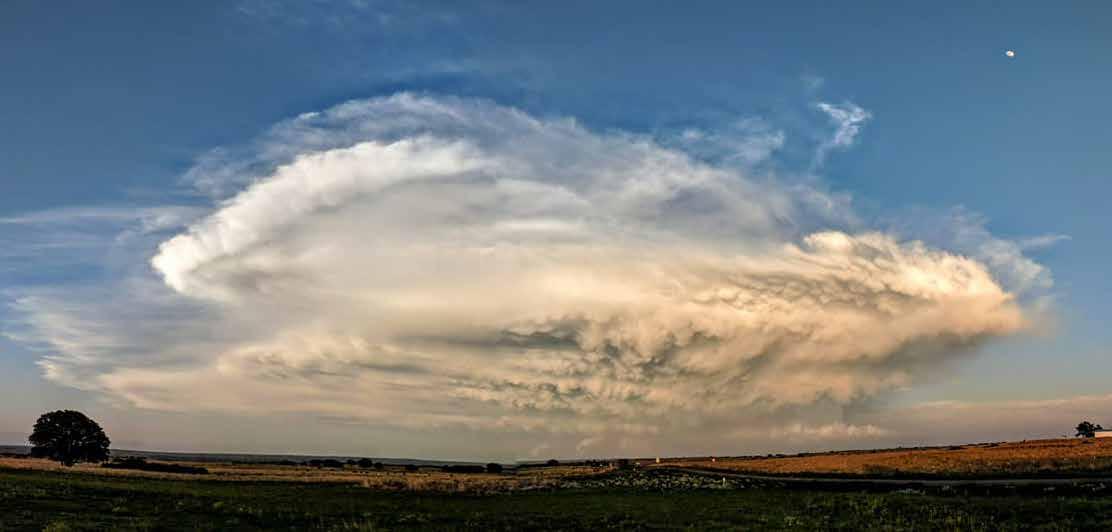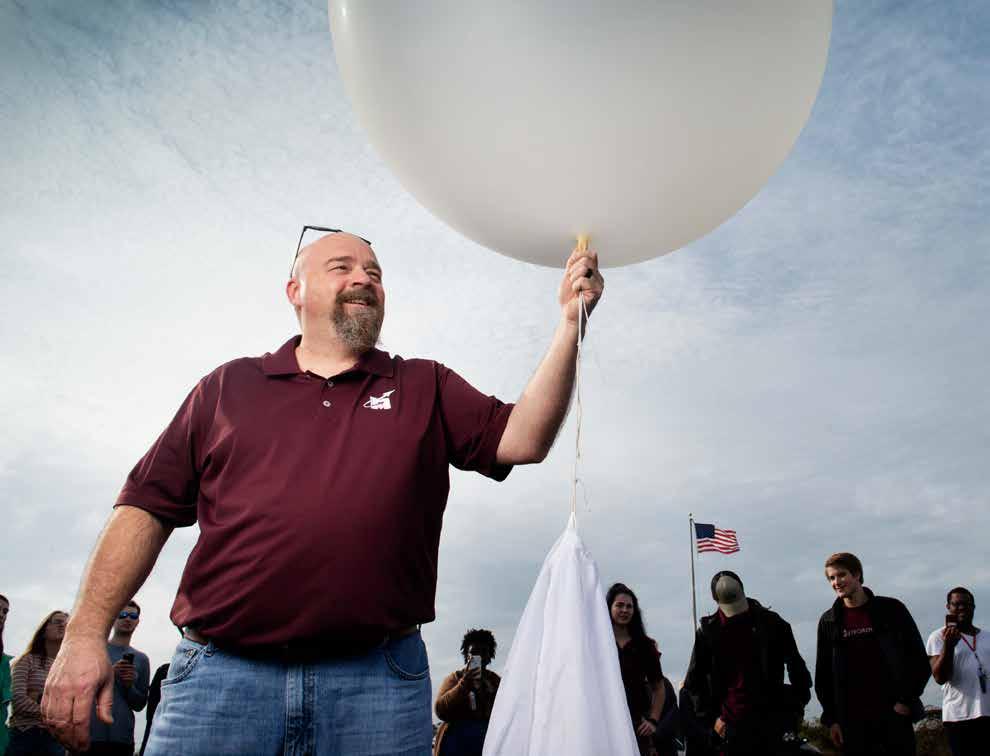
5 minute read
WEATHERING THE STORM Forecasting Insight
By Sam Kealhofer
The Office of the Mississippi State Climatologist has long been an indispensable force in the state’s understanding and addressing of climaterelated issues. Housed at Mississippi State University since its founding in 1984, this office not only tracks weather trends but also helps shape the future of agriculture, business and communities across the state.
With every weather report, research project and outreach effort, the office serves the people of Mississippi. MSU’s Mike Brown, who serves as Mississippi’s state climatologist and a professor of meteorology, leads the office. Under the guidance of MSU’s land-grant mission, Brown works daily to help Mississippians face the unique challenges of their environment.
The role of the office goes beyond weather forecasts. The team works to provide accurate, long-term climate data that informs decisions across industries— especially agriculture. For generations, farmers have leaned on the office’s expertise to understand how to manage their crops and prepare for weather extremes. These forecasts help farmers make critical choices about planting, irrigation and harvesting, ensuring they can thrive even in the most challenging conditions.
“We provide 30- to 90-day climate outlooks to help them prepare for what may be coming—extreme heat, drought or too much rain,” Brown said.
Agriculture is Mississippi’s lifeblood, and stakes are no higher than in times of drought. Over the past two years, farmers have faced back-to-back dry seasons, and their impact is still being felt. Corn and soybean fields in northeast Mississippi have taken a hit, but cattle farmers are feeling the brunt of the damage. Many have lost their pastures to the dry conditions, leaving them without the hay needed to sustain their livestock through the winter.
“Being an agricultural state means that drought has tremendous financial impacts for farmers and producers,” Brown said.
“For example, when the Mississippi River is too low, it reduces the amount barges can haul, painting a picture of how deeply intertwined the state’s economy is with the forces of nature.”
The office, however, is not just reactive—it’s proactive. By developing tools like a drought reporting app, the office empowers extension agents to send real-time updates about local conditions. The data collected helps ensure that Mississippi’s drought status is accurately classified, which is essential for securing aid and planning for the future. In this way, the office is not just tracking the drought—it’s shaping the state’s response to it, ensuring farmers and communities are prepared for the long haul.
Beyond agriculture, the office’s work touches almost every aspect of life in Mississippi.
“I consult with school districts, the Mississippi and federal emergency agencies, the Department of Housing and others during periods of unsettled weather,” Brown said.
Their work even stretches into unexpected arenas, including forecasting for professional sports teams—most recently, providing snow and lightning forecasts for the New England Patriots.
It’s this breadth of involvement that defines the Office of the Mississippi State Climatologist. The work it does is not confined to laboratories or research papers—it’s actively shaping the future of the state, helping attract businesses to cities, guiding public policy and serving the people of Mississippi.
The office’s MSU connection fuels this mission. Climate data collected at the university’s weather stations—some of which have been running for more than 130 years— feeds directly into the state’s agricultural and environmental planning. Students, too, are an integral part of the office’s work.
“I am always learning new things in this job, and many times bring that newfound knowledge into the classroom,” Brown said.
The office provides opportunities for undergraduate research, and its data is used in thesis and dissertation projects across multiple departments, including agriculture, forestry and geosciences.
For MSU alumni, friends and students, the work of the climatology office is a point of pride. It represents the university’s commitment to its land-grant roots: to serve the people of the state through education, research and outreach. The data collected here isn’t just for academic purposes—it’s actively used to safeguard the livelihoods of Mississippi’s farmers, to help cities plan for a sustainable future and to protect communities during extreme weather events.
The office disseminates this information far and wide, including through a twice-monthly newsletter available on its website. All the climate data it uses is public and archived through the National Oceanic and Atmospheric Administration, and the office even takes requests to format the data in more accessible ways for those who need it.
By fostering collaboration, advancing research and serving the public, the Office of the Mississippi State Climatologist is ensuring the state can rise to meet any challenge the future holds, serving as a prime example of how MSU’s work truly makes a difference in the lives of people across the state and beyond. u


About Mike Brown
Mike Brown is the state climatologist for Mississippi and a professor of meteorology/ climatology in the Department of Geosciences. His research interests include land-surface-atmosphere interactions and severe local storms, public perception of warnings, tornado damage paths and enhanced convection, lightning probabilities at NCAA stadiums, and thermodynamic characteristics of severe local storms in the Southeast U.S.









